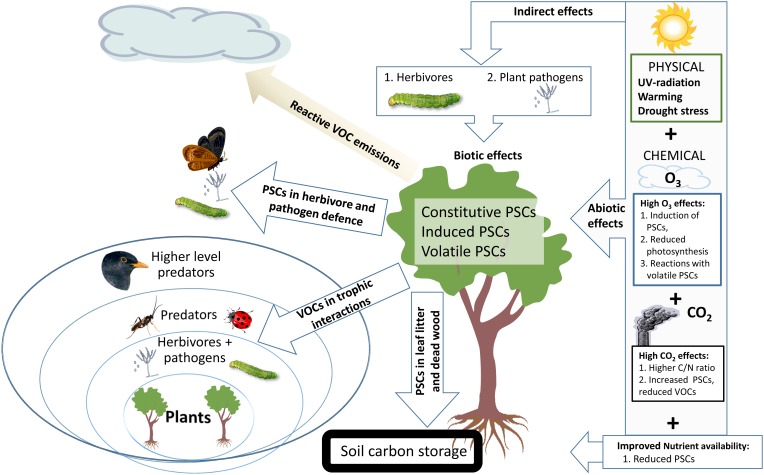FIGURE 1.
Global climate change – related abiotic and biotic stresses and their influence on types of plant secondary compounds (PSCs) in forest trees. Ecosystem level feedbacks transmitted by leaf PSCs are indicated with arrows on the left from the target tree. PSCs in foliage provide chemical defenses against herbivores and pathogens (Lämke and Unsicker, 2018). PSCs of leaf and needle litter affect mostly on tree nutrient uptake (Smolander et al., 2012) and rhizosphere organisms while PSCs in deadwood are part of important carbon storage (Pan et al., 2011) and stored PSCs could mitigate wood decay by decomposer organisms (Nerg et al., 2004; Karppanen et al., 2007) and release of CO2 to the atmosphere. Volatile PSCs (VOCs) affect the trophic interactions in the forest ecosystem where the tree is growing (Blande et al., 2014), while reactive VOCs affect the atmosphere and may have atmosphere-biosphere level feedbacks in the surrounding ecosystems (Joutsensaari et al., 2015).

